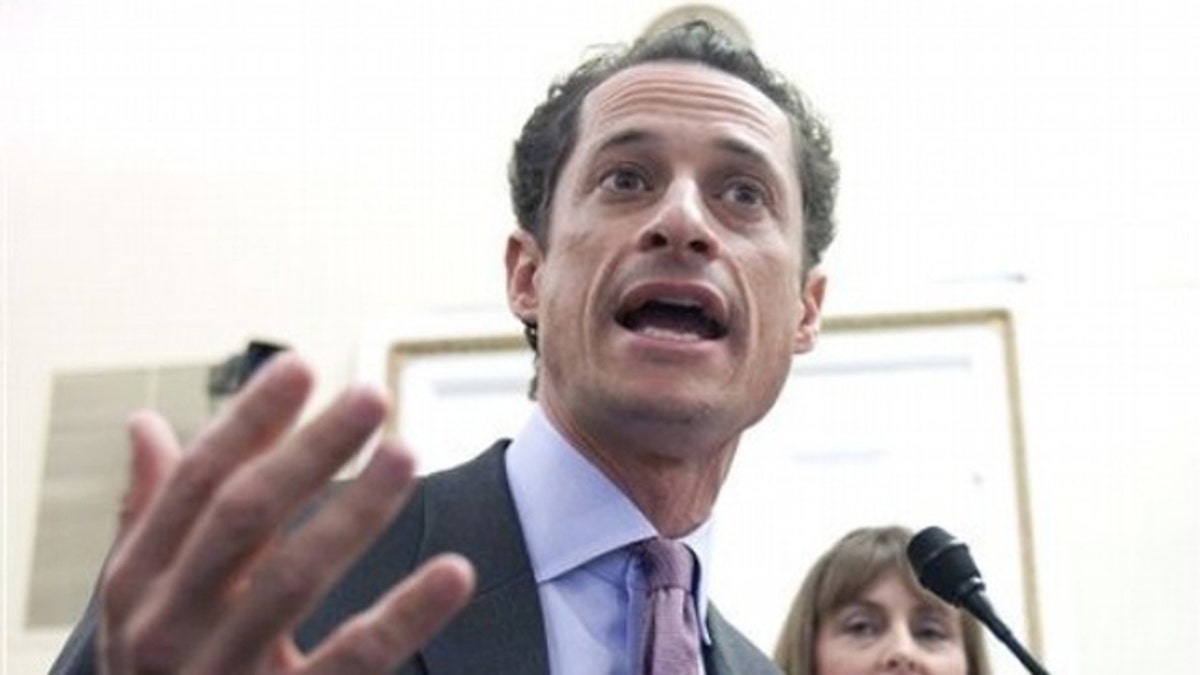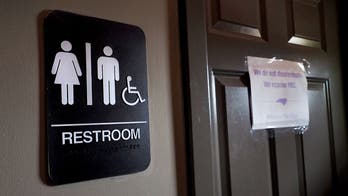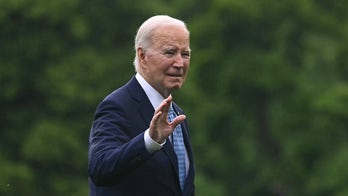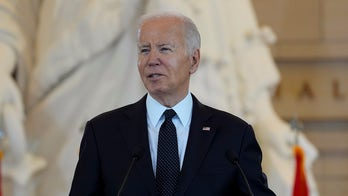
Rep. Anthony Weiner testifies on Capitol Hill in Washington Jan. 6 before the House Rules Committee. (AP)
With the White House suggesting nobody is in line to receive the up to $50 million bounty on Usama bin Laden, two New York lawmakers are calling on the Obama administration to send the money into a fund for the families of Sept. 11 victims.
Democratic Reps. Anthony Weiner and Jerrold Nadler have offered legislation that would redirect that money to groups that provide services for those families as well as first responders and survivors of the 2001 terror attacks -- though it's not clear how they would pick the eligible organizations.
"If the bounty isn't paid, Usama Bin Laden's victims should get it," Weiner said in a statement.
There's no shortage of ideas for what to do with the money. Gary Faulkner, the American who traveled to Pakistan last year to hunt bin Laden, unsuccessfully, thinks he deserves part of the prize. Various petitions and websites have appeared online calling for the money to go directly to the Navy SEALs team that bagged the Al Qaeda leader, even though as government employees they are not entitled to reap the reward. A third option would be not to pay any money, sparing the deficit another $25 million-$50 million dent.
That appears to be where the White House is leaning. Press Secretary Jay Carney said Monday that the requirement for the reward was to "provide information that leads to the whereabouts of somebody like" bin Laden.
"I mean, as far as I'm aware, no one knowledgeably said, 'Oh, Usama bin Laden's over here in Abbottabad at 5703, you know, Green Avenue'," he said.
Weiner afterward renewed his call to direct the money toward Sept. 11 victims' assistance groups, saying "there's no reason to keep that $50 million sitting unused in a bank account."
However, there is no bank account dedicated to the bin Laden reward. A $25 million reward for bin Laden and "other key Al Qaeda leaders" was originally authorized by the State Department in 2001 as part of its Rewards for Justice Program, which started in 1984. Congress later allowed for an increase in the bounty up to $50 million. But while the State Department maintains a broader fund that is used to pay for these kinds of rewards, as well as emergencies like evacuations, there is no designated pot of bin Laden reward money waiting to be collected.
"There is no specific Department of State fund dedicated exclusively to a reward for information that would lead to Usama bin Laden's location, or his arrest or his conviction," State Department spokeswoman Nicole Thompson said.
If the government were to tap into the broader fund, a federal agency involved in the bin Laden operation would first have to nominate an individual for the reward. A committee would then review the nomination and submit their recommendation to Secretary of State Hillary Clinton, who would make the final call. Asked whether that might happen, the State Department referred FoxNews.com to Carney's statement Monday.
According to the State Department, the reward program has doled out more than $60 million since its inception for "credible information that put terrorists behind bars or prevented acts of international terrorism worldwide."
U.S. officials have said the information that led to bin Laden came from multiple sources and intelligence gathering efforts, and that no single source was responsible for a eureka moment in the hunt for the terrorist leader. The only tipsters identified by officials so far are detainees like Sept. 11 architect Khalid Sheikh Mohammed, who provided important but incomplete clues.




